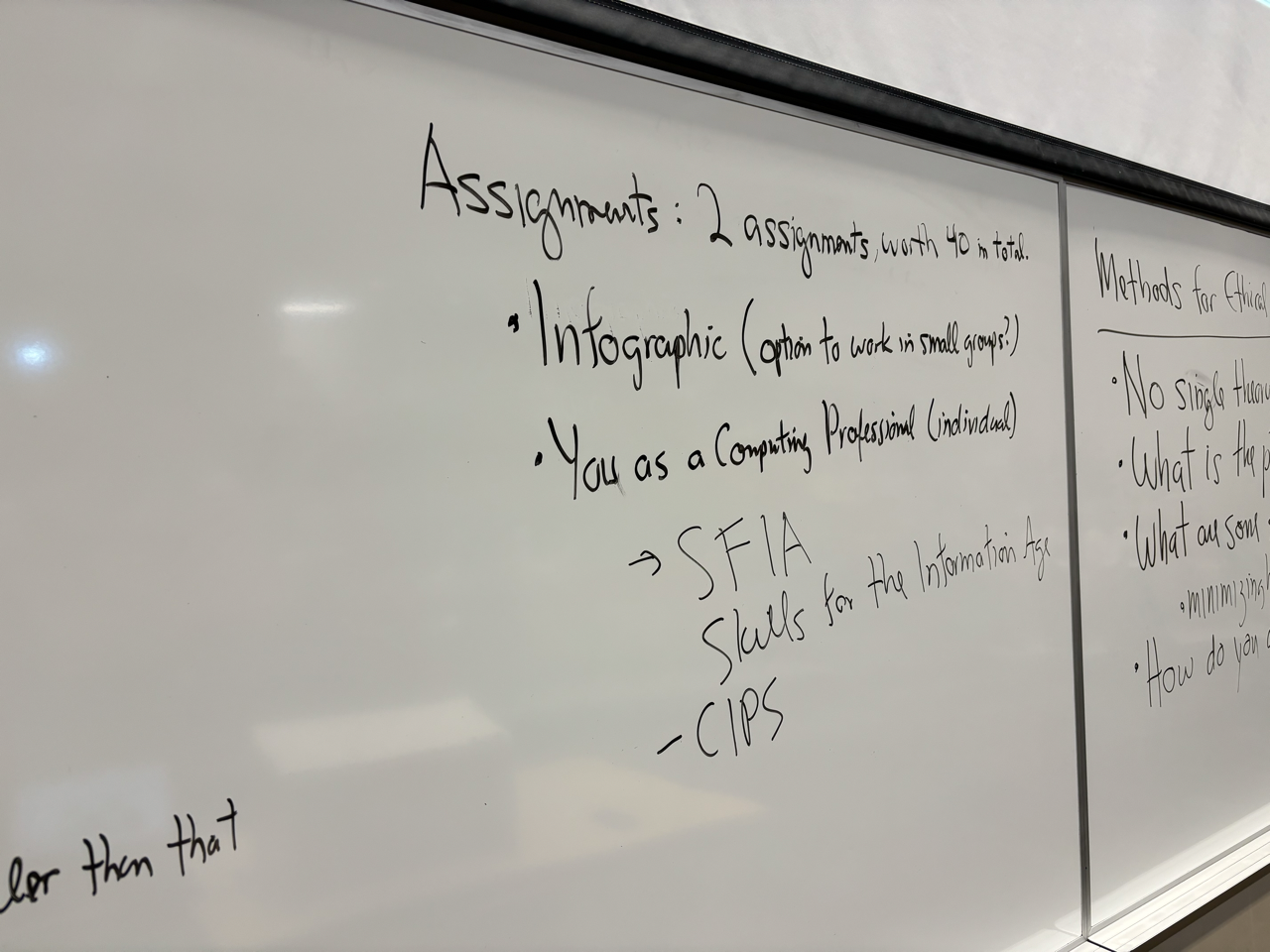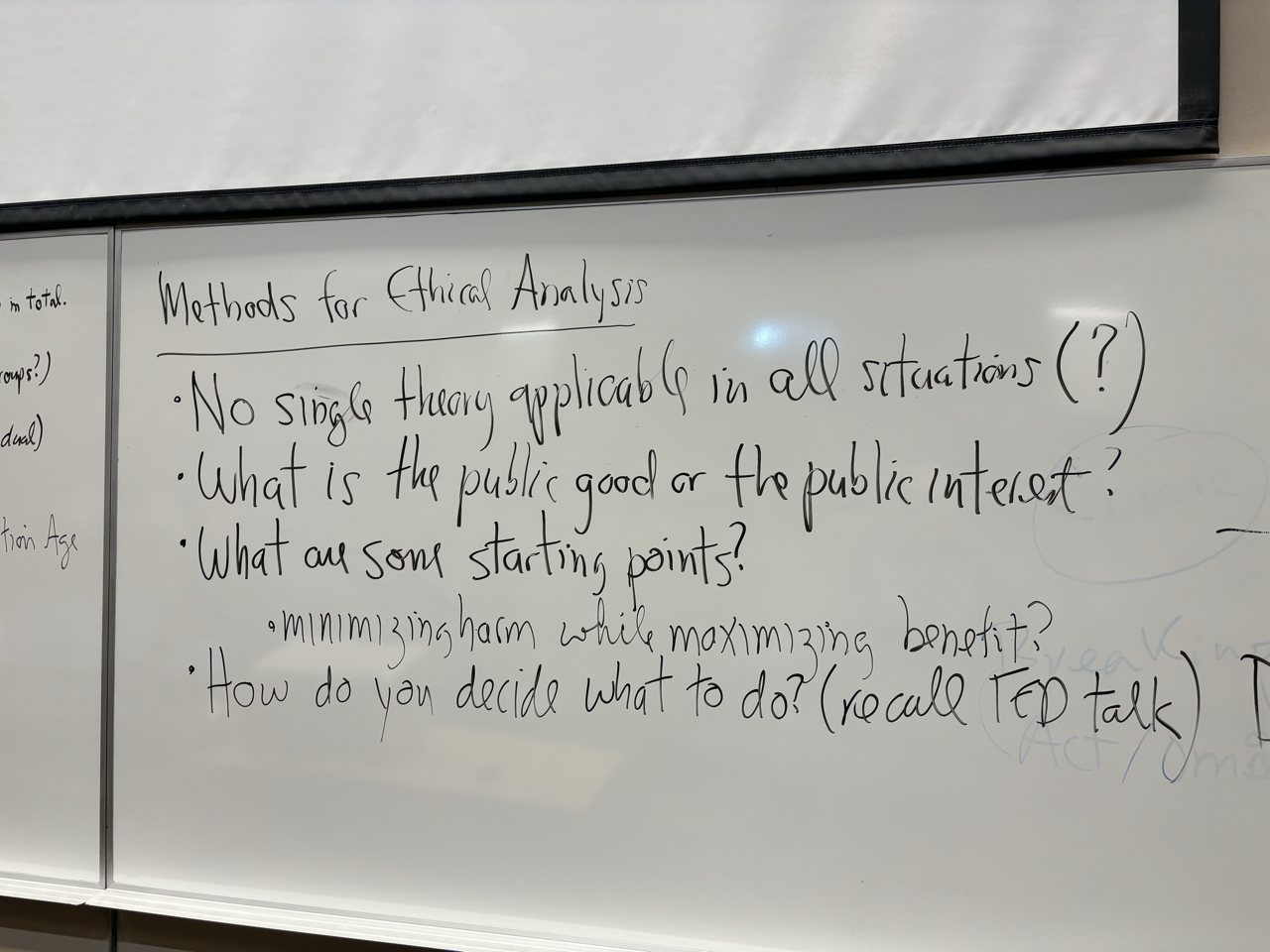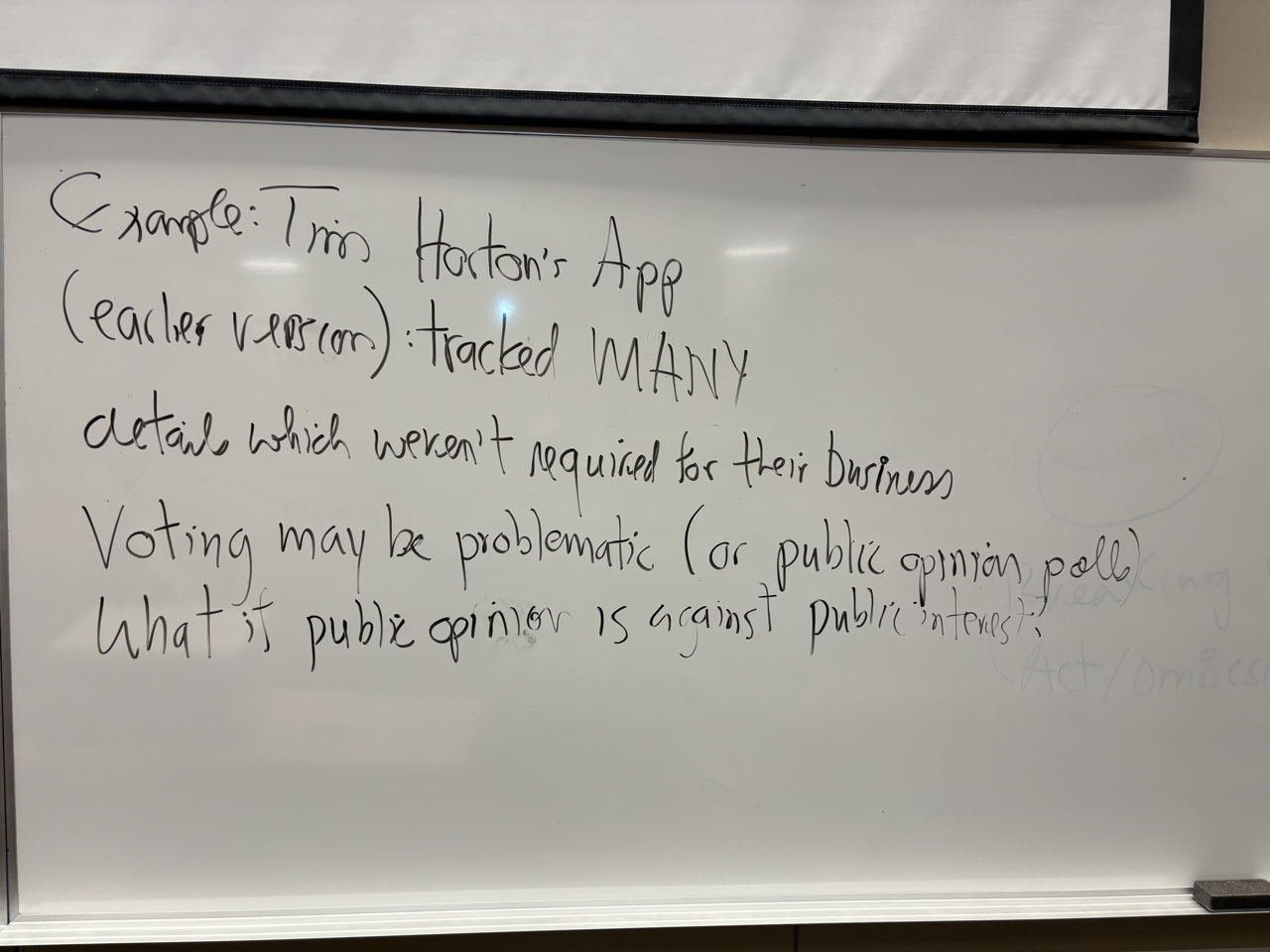Mtg 5/26: Tue-23-Jan-2024
Outline for Today
Methods for Ethical Analysis
Administration
- Happy Tuesday
- Attendance
- Class calendar for today
- Upcoming events
Response to Responses
Groups are not for projects, but class discussions (inside and outside of class meetings)
Today
- We have a TA who will be having availability outside of class to supplement my office hours
- I am still behind on administrative tasks (e-mail) but this will be resolved soon
- Groups will be set up after class today. Thank you for the contributions to the wiki. How did that go?
- more about assignments
- Ethical theories and principles are the foundations of ethical analysis because they are the viewpoints which can provide guidance along the pathway to a decision. Each theory emphasizes different assumptions and methods for determining the ethicality of a given action. It is important for students to recognize that decisions in different contexts may require different ethical theories to arrive at ethically acceptable outcomes, and what constitutes ‘acceptable’ depends on a variety of factors such as cultural context. Applying methods for ethical analysis requires both an understanding of the underlying principles and assumptions guiding a given tool and an awareness of the social context for that decision. Traditional ethical frameworks as provided by western philosophy can be useful, but they are not all-inclusive. Effort must be taken to include decolonial, indigenous and historically marginalized ethical perspectives whenever possible. No theory will be universally applicable to all contexts, nor is any single ethical framework the ‘best’. Engagement across various ethical schools of thought is important for students to develop the critical thinking needed in judiciously applying methods for ethical analysis of a given situation.
Summary
Summary
For Next Meeting
- Submit your response to this meeting before 11pm tonight
- Watch this video starting at 5:30 until 23:00
- Listen to most recent episode of Your Undivided Attention Episode 82
- Take quiz before the start of our next meeting
ACTION: Take quiz before next meeting
Wiki
Link to the UR Courses wiki page for this meeting




